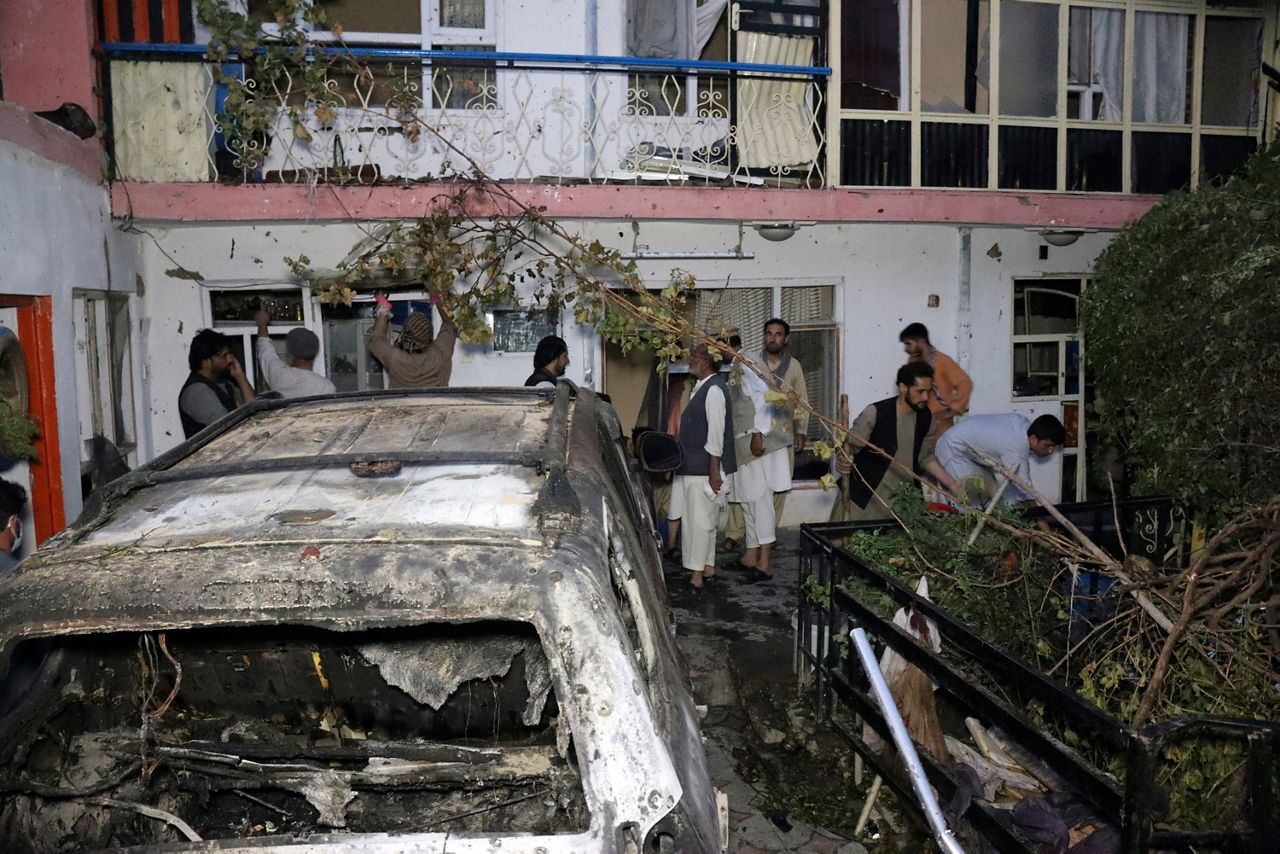CLEVELAND — Aug. 31 was the deadline for all United States troops to withdraw from Afghanistan. America’s longest war ended Aug. 30 when all U.S. Military presence left after 20 years.
But the turmoil in the Middle East is far from over now that the Taliban has control.
Here in Ohio, many Afghan families fear their loved ones will never make it out safely.
Building Hope in the City estimates there are about 100 Afghan refugee families living in Cleveland now, all desperate to save the family members trapped under Taliban rule.
The nonprofit is part of the Refugee Services Collaborative of Greater Cleveland and all of the partner organizations are working together to help refugees navigate this difficult time.
“I’m crying about the Afghanistan situation," said Qudratullah Anwari, an Afghan refugee, while wiping away his tears. “But Afghanistan is not safe. These men, Taliban is very danger. No. 1 terrorist group in the world," he said.
Qudratullah Anwari is an Afghanistan refugee. He came to the Cleveland area with some of his family 5 years ago. He fears he will never see his loved ones again that are still in Afghanistan. Find out how one NEO nonprofit is supporting refugees on @SpectrumNews1OH. pic.twitter.com/WjXhfJMOOc
— Micaela Marshall (@MMarshallTV) August 31, 2021
Anwari came to the Cleveland area with his parents, his wife, Salima Sharifi and their children five years ago.
“The Taliban say if we can get you, we kill you," said Anwari.
Anwari said he was in the Taliban jail for two weeks before fleeing the country. He told Spectrum News 1 that he was arrested while traveling from Kandahar to Kabul. Anwari said he was a literature professor who wrote two books in Afghanistan.
“The Taliban says don’t work with government, Afghanistan government. Don’t work at the university. Don’t teach girl, woman," he explained.
And seeing what’s happening in his home country now terrifies him. The couple said many of their relatives are there now living in fear.
“Thinking about my family. My uncle. Life is very bad in Afghanistan. We’re crying about my family. All the time I’m thinking about my family,” he said through tears.
In an effort to get their families to safety, Building Hope in the City is helping them file for humanitarian parole, which grants temporary refuge in the United States due to an emergency.
“When I look the news of Afghanistan, really I'm crying for Afghanistan and for my people," said Sharifi. "Not just for my families, for all of Afghanistan.”

Now that the 20-year military presence is gone, Sharifi worries that all progress will be lost.
“Twenty years ago, we have a lot of hope for Afghanistan and people of Afghanistan promised they make the cities, the nice house, marketing, business — a lot of things. Girls studying, they go to the university," said Sharifi. “All of our hope and our dream, it's done.”
Anwari is begging for help and hopes his message reaches those who can provide it.
“We want Joe Biden. We want the United States government, please help," said Anwari.
Building Hope in the City said it has helped more than 100 families file for humanitarian parole and each application costs $575. The nonprofit said it was able to raise $66,000 to cover the legal fees.
“We don't know where we are, like what will history say about this, and what I think we should look at is, what did we do during this time? You know, did we just stand by and watch it or did we do something? You know, did we help the people? They didn't do anything wrong. They were — they did not think to themselves, 'oh hey, this is great I get to come to America, eventually.' This is not the way to come, you know, so I think even having a little bit of understanding and watching people go through this, to understand what it is for the life of a refugee," said Eileen Wilson, the director of Refugee & Immigrant Ministries at Building Hope in the City. "To have to run, to have to run with your children, and not to know where you're going to end up, not to know how long you're going to be there, not to know what it will be when you come — those are a lot of unknowns."
Wilson said the vetting process before refugees can flee can take years and the hope is the humanitarian parole will speed up the timeline.
Building Hope in the City offers English classes and Citizenship classes among many other things to support the refugee population. The nonprofit says it is always in need of donations and volunteers. For more information, click here.



